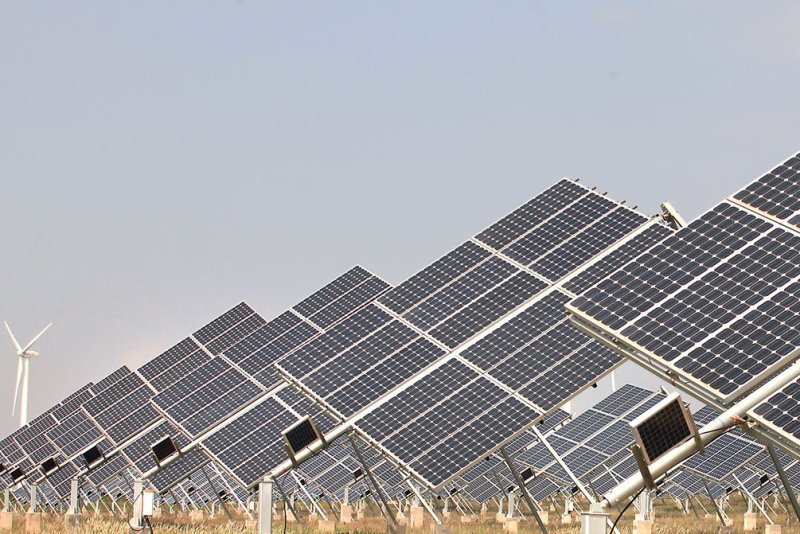Norwegian energy company Statoil, which has waded into the low-carbon sphere, said a radical new way of thinking may be needed to advance renewable resources. File photo by Stephen Shaver/UPI |
License Photo
STAVANGER, Norway, June 9 (UPI) -- Even under the best-case scenario, Norwegian energy company Statoil said a radical transformation is needed to advance a global low-carbon economy.
Statoil last year joined nine of the world's largest oil and gas companies in pledging to play a constructive role in reducing the intensity of global greenhouse gas emissions.
Through the Oil and Gas Climate Initiative, the companies said they're committed to "significant actions" to cut greenhouse gas emissions from their operations. The 10 companies combined for about 10 percent of all global energy supplies and said they've reduced their greenhouse gas emissions by around 20 percent over the last 10 years.
In an annual review, the Norwegian company said that, even with a rapid shift to renewable energy resources like wind and solar power, oil and gas will still dominate the global energy sector through 2040.
"In order to achieve the objectives of the Paris climate agreement we need fast changes in the electricity sector and in private car transport, in addition to a strong energy efficiency improvement in all sectors," Statoil Chief Economist Eirik Waerness said in a statement.
With fossil fuels dominating the energy mix for the foreseeable future, Statoil said the industry will need substantial new investments to keep prospective new reserves viable. Lower oil prices have starved energy companies of the capital to invest in exploration and production, while influencing consumer demand for cheap fuel. Consumers, meanwhile, have turned to larger, and less fuel-efficient vehicles, as a result of lower fuel prices, which is driving up the demand for fossil fuels.
Under a best-case scenario for low-carbon developments, the Norwegian oil company said 90 percent of the new passenger vehicles sold by 2040 would be hybrid or electric cars. Solar and wind power, meanwhile, would by 2040 account for 40 percent of all of the electricity generated in the world, compared with the current level of 5 percent.
"This will require a radical and coordinated effort and transformation of the transport and electricity sector, driven by efficiency efforts, technology development, markets, consumer behavior and, not least, politics," Waerness said.














